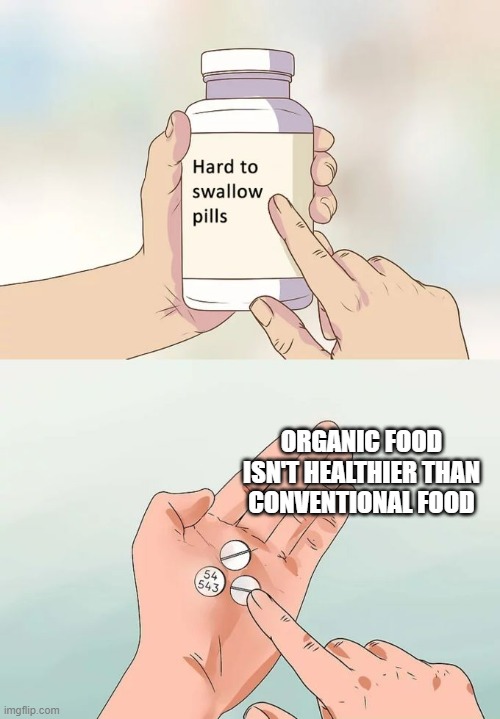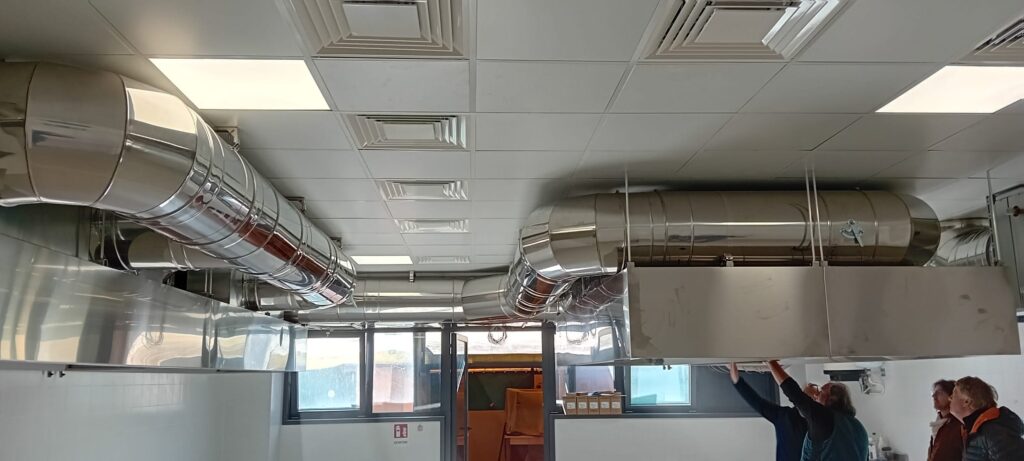The smiling farmer, the shining trees under the spring sun, the hens cackling after having laid an egg on a bale of hay… all these bucolic scenes arouse in our mind an idea of genuine, delicious and healthy food.
Unfortunately, at some point, romanticism has to deal with the harsh and cynical reality.
So: is organic food healthier than so-called “conventional” food?
No.
Or rather, there are no elements to say so at present.
Yes, the meme was just click-bait. Sue me!
However, let’s see what science says, shall we?
The meta-analysis
First, a meta-analysis (statistical analysis that combines the results of multiple scientific studies) dated 2019, published by a team of researchers from the Southern Cross University, Lismore (Australia): “A Systematic Review of Organic Versus Conventional Food Consumption: Is There a Measurable Benefit on Human Health?“.
By analyzing 35 studies, published before January 2019, the researchers found that, although some benefits are observable (above all: reduction of pesticides in urinary excretions, reduction of inflammatory markers), these are only observable in the short term.
The conclusions read that
“there is insufficient evidence to show translation into clinically relevant and meaningful health outcomes”.
Nutritional Properties and Environmental Impact
“Organic and conventional food: Comparison and future research” is the title of a study conducted in February 2019 at the Università Cattolica del Sacro Cuore, Piacenza (Italy).
This even goes so far as to state that not only is there currently a lack of scientific evidence regarding the better healthiness of organic foods, but there are no indications that they are better from the point of view of either nutritional properties or environmental impact.
The Anthropogenic Sources of Pollution
Lastly, a study conducted at the Universitat Rovira i Virgili (Reus, Catalonia, Spain): “Occurrence of environmental pollutants in foodstuffs: A review of organic vs. conventional food“.
The authors express doubts about whether organic production is actually less harmful to human health. They conclude that:
“in general, the presence of nearby anthropogenic sources of pollution is the key issue influencing the occurrence of environmental pollutants in foodstuffs, regardless of their organic or conventional origin”.
Science does not claim the power to tell the absolute truth. It is rather a continuous and constant process of seeking the truth through experiments, confirmations and refutations.
My point is (and I can’t stretch it enough): there is no substantial evidence to say that organic is better given the current state of knowledge.
But yes: there are elements that lead us to think so, and the topic needs to be explored further.
Are We still friends? Then remember: if you work in #cateringindustry and/or #hospitalityindustry and you are interested in my #copywriting and/or #contentwriting services, just DM me!

 Italiano
Italiano













